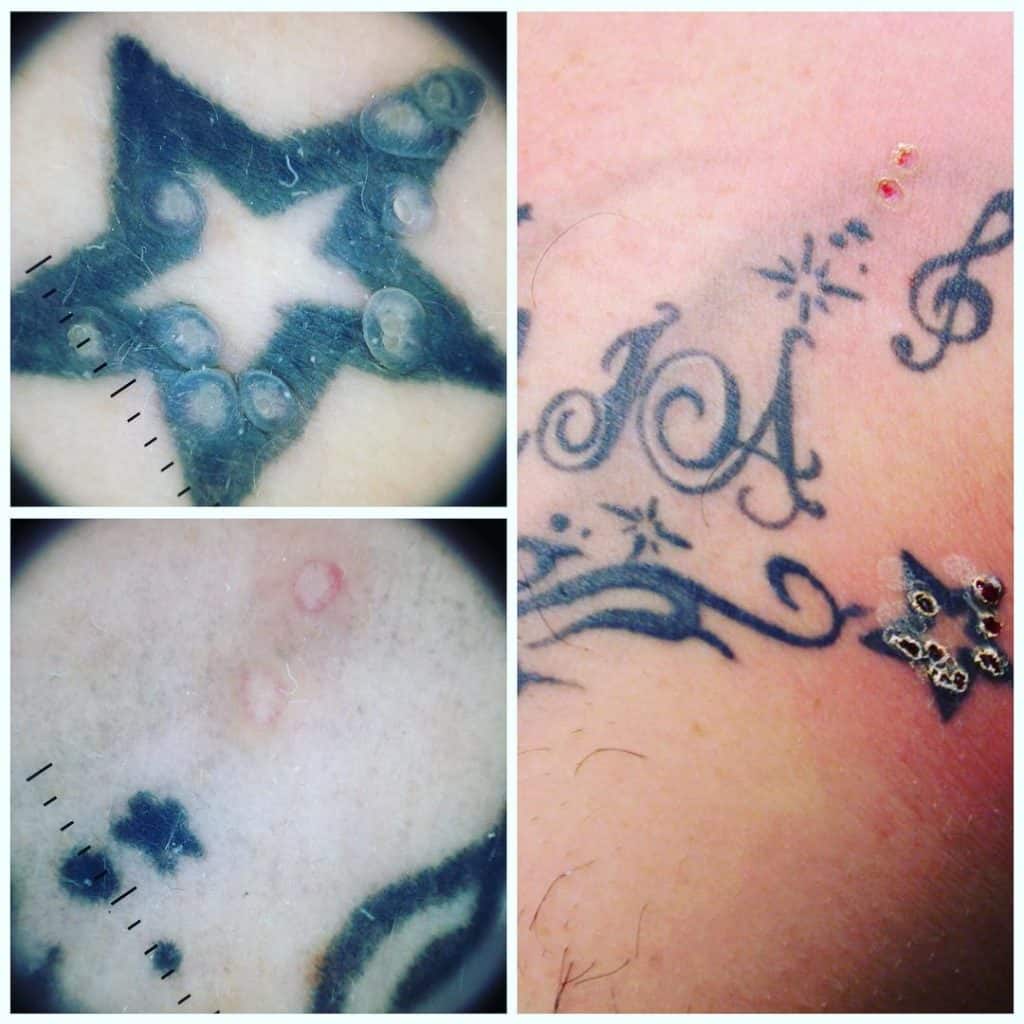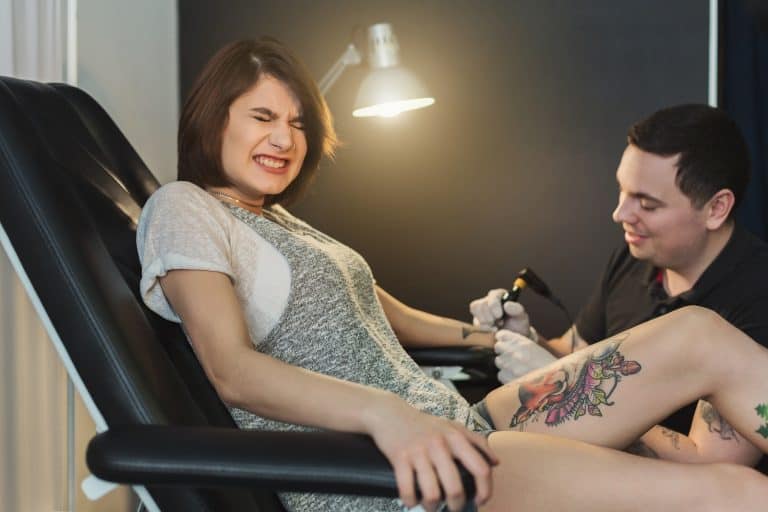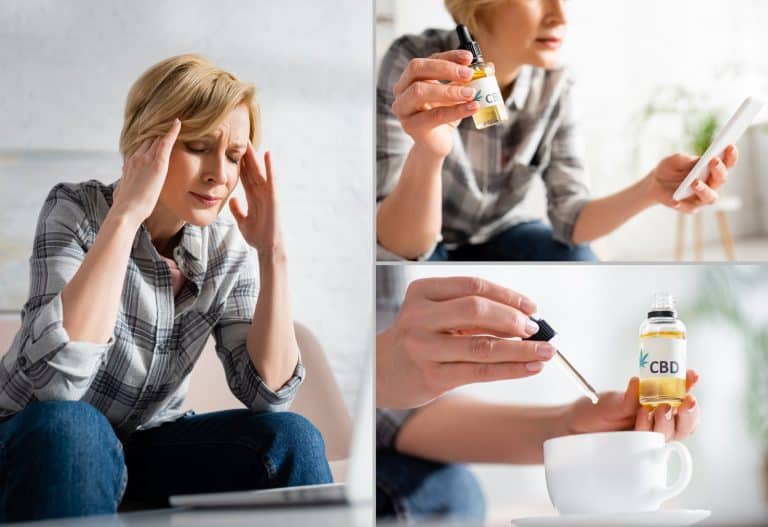Tattoo Side Effects: Risks You Should Be Aware Of!
Tattoos are always an appealing idea; getting an awesome tattoo can be a super exciting and fun experience that will last you a lifetime. However, under all the fun and excitement lie the difficulties of proper tattoo healing and avoiding complications during and after the tattoo process.
So, if you’re thinking of getting a tattoo, it is essential for you to inform and educate yourself prior to the appointment. In the following paragraphs, we’ll go over some of the most common tattoo side effects and risks everyone should be aware of. So, without further ado, let’s get started!
The Most Common Tattoo Side Effects
In the majority of the cases, tattoo complications or side effects occurring during the very tattooing process or right after one has been tattooed. The reason for this lies in the fact that a tattoo is an open wound. So between the exposure of the body to all sorts of germs and infectious particles to improper healing, the first 24 to 48 hours are generally the most important ones to avoid side effects and complications.
However, if anything does occur, it is generally in the form of the following side effects;

Skin Infection
One of the most common side effects of tattoos is skin infections. There are numerous reasons skin infections occur. For example;
- One has been tattooed with contaminated tools
- One has been exposed to bacteria, viruses, and pathogens during the tattooing process
- One is experiencing skin and blood infections
- One has been tattooed in a contaminated environment
- One has been tattoed by an amateur who didn’t clean the setting or didn’t wear new and clean gloves
- One didn’t follow a proper aftercare routine
- One applied Vaseline onto a fresh tattoo
Skin infections often manifest in inflamed and raised tattoo skin areas. There is also excessive oozing of the plasma and ink from the tattoo, and in some cases even bleeding.
The tattoo is sore and painful, and one may even experience increased body temperature and fever-like symptoms. If such symptoms occur, one needs to seek immediate medical attention and antibiotic treatment.
Tattoo infections may not appear right away. Some infections occur a week or two into the tattoo healing process.
Allergic Reactions
Now, allergic reactions are also a common tattooing side effect. And, they can occur for two main reasons.
The first reason is the ink used to tattoo you. If a tattoo artist uses low-quality ink, that doesn’t have displayed ingredients, chances are the ink contains toxic parts and even plastic. Black ink the least allergic-inducing one. However, ink pigments like yellow, red, green, or blue are the most allergenic among people.
Symptoms of ink allergy include severe itching, skin raising or swelling, redness, rashing, and hives. In such a case, one needs to seek immediate medical attention and proper treatment. After an allergic reaction, chances are the tattoo won’t look good.
Another reason allergic reactions occur during tattooing is the gloves used by the tattoo artist. Professional tattoo artists do not use latex gloves for a reason. Many people don’t know they’re allergic to latex, and during the tattooing, if the tattooed area is touched by latex, it can result in an allergic reaction.
So, if you’re not sure whether or not you’re allergic to latex, make sure to ask your tattoo artist to use nitrile gloves, if they don’t already use them. Nitrile gloves do not cause allergic reactions and are generally the best glove choice for tattooists.
Cancer Signs Covering
This may not seem like a direct side effect of tattoos, but, unfortunately, tattoos can hide signs of skin cancers, especially if they’re big. Dermatologists cannot observe skin changes in the tattooed area.
For example, in early signs of skin cancer, there’s generally a change in skin color or pigmentation and a change of moles. When covered by ink, the skin does change, but the change is not visible to the doctor because of the ink.
In such cases, dermatologists can miss early skin changes, which could later affect cancer development and treatment. If you plan to get a tattoo, it is recommended to get your skin checked and see whether you’re at risk of developing skin cancer or major skin changes.
Overall, it is always recommended to get smaller tattoos, since bigger tattoos make it even harder to notice changes on the skin.
Medical Issues
In case a tattoed person needs to get an MRI, chances are the person could experience some serious issues with the tattoo. Studies have shown that metal-based ink reacts with MRI (or magnetic resonance) and can cause rising, swelling, and even burning of the tattoo.
One particular case was noted for such MRI results. A tattoed man was having a spinal MRI. Because of the reaction with the ink, the man suffered second-degree skin burns, swelling, and raising of the tattooed skin.
As explained in the study by experts, such cases occur as a result of electromagnetic reactions due to metallic compounds in tattoo pigments, one of them being iron oxide. That is why experts suggest people avoid getting tattoos with iron-based ink. If they do have such tattoos, it is essential to notify the doctor on time.
Sweating (Bodily Function) Issues
Regardless of whether you have a small or big tattoo, it will affect the way the tattooed skin sweats. This can be a major issue because sweating is a natural process and a necessary bodily function that helps the body cool down. Non-tattooed skin sweats at a 100% rate, however, tattooed skin produces 50% less sweat, according to recent studies.
Now, why is this an issue? Well, as your skin sweats, it reabsorbs sodium and electrolytes which are released during sweating. If the skin is tattooed, it won’t reabsorb sodium and electrolytes, which can prevent the skin from cooling down. This can cause major thermoregulatory issues in the body, especially if the tattoo is placed in areas of many sweat glands.
Blood-Borne Diseases
Getting a tattoo infection via contaminated tools or ink isn’t the only danger of getting a tattoo. In 2012, the FDA has linked several cases of blood-borne diseases and multi-state bacterial outbreaks to contaminated ink. In case you’re not familiar with the term, blood-borne diseases comprise diseases like hepatitis B, hepatitis C, and human immunodeficiency virus, also known as HIV.
The majority of the cases were linked to the ink used for the tattoos. More than 10% of all unopened tattoo ink bottles are already contaminated with bacteria. Because the ink is considered a part of cosmetics, there is no real insight into the production process or the ingredient list in regards to ink. As a result, the ink can enter the marketplace without FDA regulations and standards.
So, Are Tattoos Safe?
After going through all of the potential tattoo side effects, it can be hard to say that tattoos are completely safe.
However, we do have to be realistic here. If you go and get a tattoo at a professional tattoo shop, by a professional tattooist, chances are you won’t experience serious issues. If you do follow the proper aftercare routine, you’ll minimize the risk of infection and complications even further. And, if you do go to a doctor and check your skin for possible allergies and diseases, you’ll minimize the risk of unwanted reactions completely.
So, there are a few steps you can take before getting a tattoo to minimize the side effects and risks of getting a tattoo.
If you don’t care where you’re getting your tattoo, and whether the tattooist uses clean sanitized tools and ink, then a tattoo infection or serious complication shouldn’t come as a surprise.
Final Thoughts
Tattoos, when done and taken care of properly, are considered safe. So, unless you have a skin condition or an allergy reaction risk, you should be fine getting a tattoo at a professional tattoo shop.
However, if you do notice signs of complications, like a rash, redness, swelling, increased pain levels, or even a fever, make sure to seek medical attention immediately. And, before you get a tattoo, bear in mind that the ink in your skin is meant to be permanent. So, if any reactions do occur, they might be permanent, or chronic as well. So, do your research and weigh the pros and cons carefully before you go and get tattooed.
- Safe, non-toxic plant-based temporary tattoos made with 100% high-definition printing for a realistic look without the pain
- Easy to apply and remove - just stick for 20 seconds then take off
- Set includes 5 sheets with 17 fun, delicate designs like hearts, cats, smiles, suns, moons, and more
- Waterproof and long-lasting - stays on up to 2 weeks of wear
- Fashionable for women, men, girls and boys
- Place on arm, wrist, neck, leg, finger, waist, foot and more
- Great for parties, birthdays, and showing your unique style








